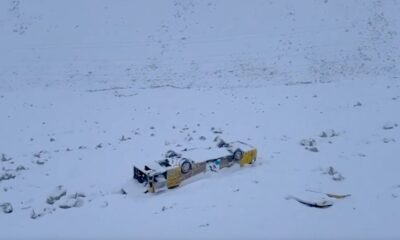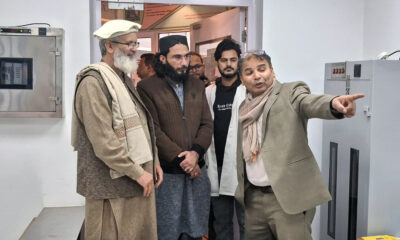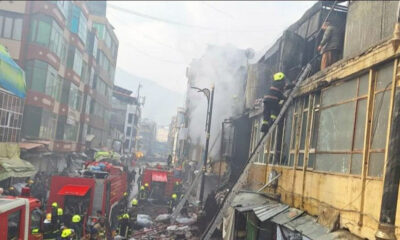Latest News
Afghan scholars issue 11-point resolution after 3-day mass gathering in Kabul
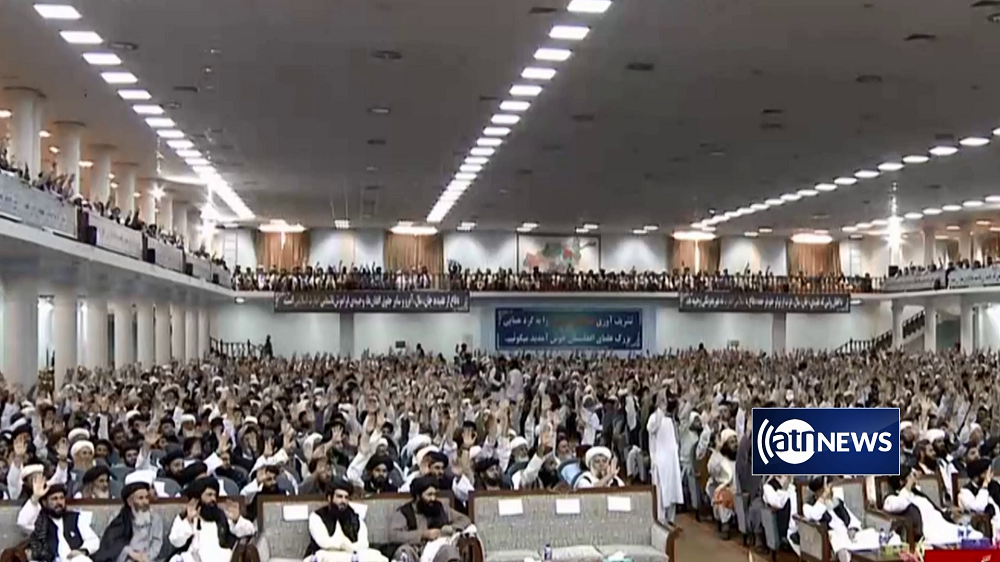
An Islamic Emirate of Afghanistan (IEA) gathering of religious scholars and ethnic leaders in Kabul ended on Saturday after an 11-point resolution was agreed to.
Resolutions adopted related to a number of issues including the IEA’s call for the international community to recognize them as the legitimate government in Afghanistan.
“We call on the world, neighboring countries, the United Nations, global organizations, specifically on the Islamic countries and agencies to recognize the Islamic Emirate of Afghanistan as a legitimate government,” the resolution read.
In addition, the participants at the meeting also called for all sanctions against the IEA and its leaders to be lifted and for the country’s frozen assets to be released.
The IEA’s reclusive leader Haibatullah Akhundzada also joined the three-day gathering of more than 3,000 men on Friday, and delivered a speech in which he congratulated the participants on their victory and underlined the country’s independence.
Akhundzada, who is normally based in the southern city of Kandahar and rarely appears in public, said in his address on Friday that foreigners should not give orders.
In their resolution, the religious scholars stated that defending the Islamic Emirate was obligatory and that the Islamic State (ISIS/Daesh), which has claimed responsibility for a number of incidents in recent months, was illegal.
A statement issued by the religious scholars outlining their 11-point resolution read as follows:
1. As we now have an Islamic system, we all support and defend the IEA system and it is compulsory for all Afghans to support and defend the Islamic system.
2. The 3,000 scholars once again renewed their allegiance to the supreme leader of the IEA Haibatullah Akhundzada and accepted him as the legitimate leader based on Sharia.
3. As the IEA has been formed without the interference of other countries, this verifies its domestic legitimacy. We call on the world, neighboring countries, the United Nations, global organizations, specifically on Islamic countries and agencies to recognize the Islamic Emirate of Afghanistan as a legitimate government. In addition, they must remove all sanctions from Afghanistan and should release the county’s frozen assets.
4. We (scholars) support and praise the issued order of the IEA for not cultivating poppies and other drugs in the country.
5. We support the policy of non-interference in the internal affairs of neighboring and world countries by the IEA and we support the IEA’s decision to not allow any countries to use Afghanistan’s soil against any country. Likewise, we call on the countries around the world and neighbors not to interfere in the domestic affairs of Afghanistan.
6. As the IEA is an Islamic system and has full sovereignty across the country by providing security, any means of armed resistance against the IEA is rebellion and the eradication of such armed resistance groups is compulsory by the IEA and the nation.
7. The Islamic State of Khorasan Province (ISKP/Daesh) is an illegal group which spreads corruption in the country; therefore, financially supporting this group and having relationships with it is haram.
8. We call on scholars who fuel controversial issues to refrain from such topics so as not to cause sedition in the country.
9. We urge the Islamic Emirate to establish justice in the country and to pave the way for religious and modern education, health, agriculture, rights of ethnic minorities and women and children and economic development, within the structure of Sharia.
10. We call on the leadership of the IEA to stabilize their internal unity, national unity and to protect national sovereignty. Also, we urge them to create job opportunities for Afghans and to eradicate poverty in the country.
11. We support the Contact Commission with the Afghan Personalities established by the IEA and we call on politicians and figures based in foreign countries to return home.
Latest News
Afghanistan signs 30-year deal for marble mining in Daikundi

The Ministry of Mines and Petroleum of Afghanistan has signed a 30-year agreement with a private company to extract marble in Daikundi province.
Under the contract, the company will invest AFN 283 million in exploring and mining marble at the “Mesh-Uliya” site, spanning 16.74 square kilometers in central Daikundi.
Hedayatullah Badri, Minister of Mines and Petroleum, stated that the marble will be processed domestically before being exported abroad. He added that the Mesh-Uliya project is expected to create around 200 jobs, and the company is committed to supporting local communities through social initiatives.
Economic experts highlight that such investments, especially those focusing on domestic processing, are crucial for job creation, boosting exports, and strengthening the national economy. Analysts further note that the project will improve local infrastructure, expand social services, and enhance the economic and social well-being of Daikundi residents.
Since the return of the Islamic Emirate to power, efforts to develop Afghanistan’s mining sector have intensified, with multiple contracts signed in areas including cement, copper, iron, and lapis lazuli, involving both domestic and international companies.
Latest News
Passenger bus veers off Salang Highway, leaving 5 dead, dozens injured
Latest News
Major fire in Mandawi Kabul market contained, extensive losses prevented
Local shopkeepers said the fire broke out around 4 a.m.
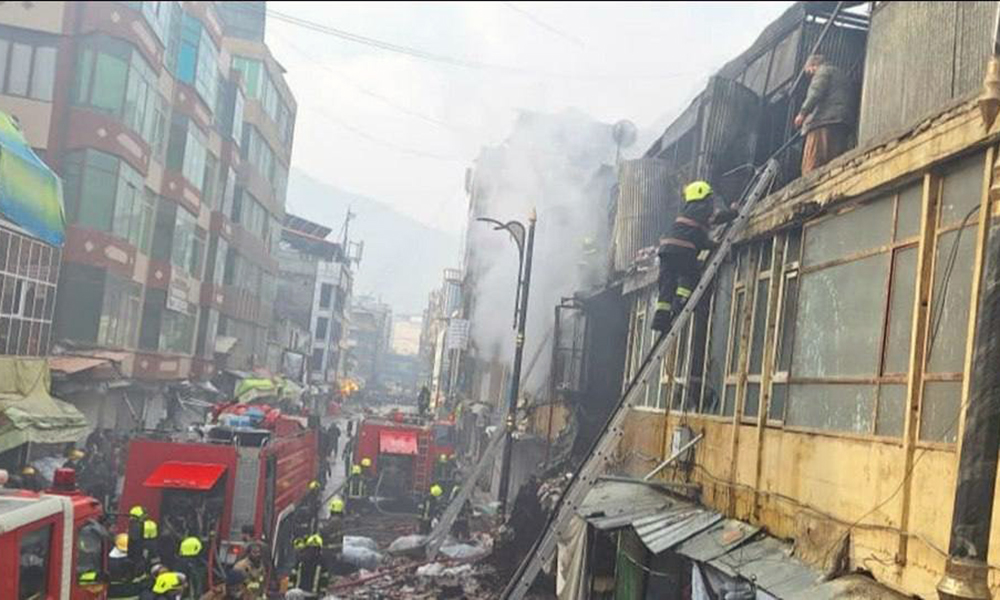
The Ministry of Interior reported that personnel from the General Directorate of Firefighting and Emergency Response successfully prevented the further spread of a fire at Mandawi market on Kabul early Sunday morning.
Abdul Mateen Qani, spokesperson for the ministry, said that the fire destroyed 10 storage facilities and 8 shops. He added that initial losses are estimated at around $700,000, but timely action by firefighting personnel saved property worth approximately $2.2 million.
Qani explained that the fire was caused by an electrical short circuit. He praised the rapid and effective containment operations, which prevented more extensive damage.
Local shopkeepers said the fire broke out around 4 a.m.
-

 International Sports5 days ago
International Sports5 days agoIPL 2026: Teams take shape after auction as franchises balance star power and depth
-

 International Sports4 days ago
International Sports4 days agoILT20: Abu Dhabi Knight Riders end Desert Vipers’ unbeaten run in dramatic one-run win
-

 Latest News2 days ago
Latest News2 days agoAfghan border forces prevent illegal entry of hundreds into Iran
-
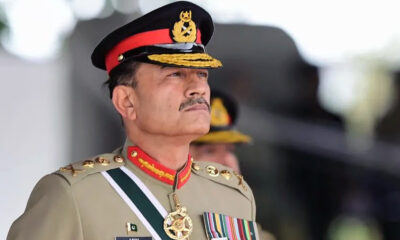
 Regional5 days ago
Regional5 days agoPakistan’s military chief Asim Munir in spotlight over Trump’s Gaza plan
-

 Latest News2 days ago
Latest News2 days agoPakistan summons Afghan diplomat over deadly attack in North Waziristan
-

 Business4 days ago
Business4 days agoMahirood Customs leads Iran’s exports to Afghanistan
-

 World5 days ago
World5 days agoTrump adds seven countries, including Syria, to full travel ban list
-
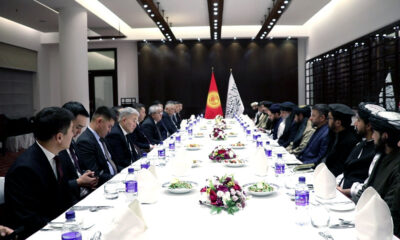
 Latest News4 days ago
Latest News4 days agoAfghanistan, Kyrgyzstan discuss expanding trade and economic cooperation








